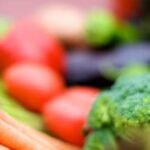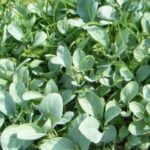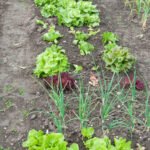When it comes to gardening, using fertilizer is a common practice to provide plants with the necessary nutrients for healthy growth. Cow manure has been a popular choice for many gardeners due to its organic and natural composition. However, the question remains: is cow manure fertilizer safe for vegetable gardens? In this article, we will explore the benefits, potential risks, and best practices of using cow manure fertilizer in vegetable gardens.
Using cow manure as a fertilizer offers numerous benefits for vegetable gardens. It provides essential nutrients such as nitrogen, phosphorus, and potassium, which are vital for plant growth. Additionally, cow manure helps improve soil structure and moisture retention, making it an ideal choice for maintaining healthy and productive vegetable patches.
Despite its advantages, there are also potential risks and concerns associated with using cow manure fertilizer in vegetable gardens. Contaminants such as pathogens and antibiotics may be present in the manure, potentially posing health hazards to both the plants and consumers. Understanding these risks is crucial in ensuring the safe and effective use of cow manure fertilizer in vegetable gardening.
Benefits of Using Cow Manure Fertilizer in Vegetable Gardens
Using cow manure fertilizer in your vegetable garden can provide numerous benefits for your plants. Here are some of the advantages of using cow manure fertilizer:
- Rich in Nutrients: Cow manure is rich in essential nutrients such as nitrogen, phosphorus, and potassium, which are vital for plant growth and development.
- Improves Soil Structure: The organic matter present in cow manure helps to improve the soil structure, making it more conducive to plant root growth and water retention.
- Enhances Microbial Activity: Cow manure contains beneficial microbes that can enhance the overall health and fertility of the soil, promoting better nutrient uptake by plants.
In addition to these benefits, using cow manure fertilizer is also a sustainable practice as it allows for the recycling of animal waste into a valuable resource for gardening. By incorporating cow manure into your vegetable garden, you are not only enriching the soil but also reducing waste.
It’s important to note that while there are significant benefits to using cow manure fertilizer, there are also potential risks and concerns that need to be considered. Understanding how to mitigate these risks will be crucial in ensuring the safety and effectiveness of using cow manure fertilizer in your vegetable garden.
Potential Risks and Concerns of Using Cow Manure Fertilizer
Risk of Pathogens
One potential risk of using cow manure fertilizer in vegetable gardens is the presence of pathogens. Cow manure can contain harmful bacteria such as E. coli and Salmonella, which can pose a health risk if not properly handled and treated. These pathogens can contaminate the vegetables grown in the garden, leading to foodborne illnesses if consumed.
Environmental Impact
Another concern with using cow manure fertilizer is its potential environmental impact. If not managed properly, excess nutrients from the manure can run off into nearby water sources, leading to water pollution and ecosystem disruption. This can result in harmful algal blooms and damage to aquatic life.
Chemical Residues
In some cases, cow manure fertilizer may also contain traces of medications or chemicals that were given to the cows. These residues can potentially accumulate in the soil and transfer to the vegetables, posing a risk to human health if consumed over time.
Considering these potential risks and concerns, it’s important for gardeners to use caution when utilizing cow manure fertilizer in their vegetable gardens. Proper handling, treatment, and application techniques are crucial to minimize these risks and ensure the safety of the produce grown.
Understanding the Composition of Cow Manure Fertilizer
When it comes to understanding the composition of cow manure fertilizer, it is important to recognize that it contains a variety of nutrients that are beneficial for vegetable gardens. Cow manure is rich in nitrogen, phosphorus, and potassium, which are essential for plant growth. In addition to these primary nutrients, cow manure also contains important micronutrients such as calcium, magnesium, and sulfur. These nutrients can help improve soil quality and promote healthy plant growth in vegetable gardens.
Nitrogen Content
One of the key components of cow manure fertilizer is its nitrogen content. Nitrogen is essential for the production of chlorophyll, which is necessary for photosynthesis and overall plant health. As cow manure decomposes, it releases nitrogen into the soil, providing a slow-release source of this important nutrient for vegetable plants.
Organic Matter
In addition to its nutrient content, cow manure also contributes organic matter to the soil. This organic matter improves soil structure, increases water retention, and promotes beneficial microbial activity in the soil. This can lead to improved overall soil health and fertility in vegetable gardens.
Potential Contaminants
While cow manure fertilizer has many benefits for vegetable gardens, it is important to be aware of potential contaminants that may be present in the manure. Cow manure can contain pathogens such as E. coli or salmonella if not properly composted or aged.
To minimize the risk of contamination, it is crucial to ensure that the cow manure has been properly composted or aged before using it in vegetable gardens. By understanding the composition of cow manure fertilizer and taking appropriate precautions, gardeners can make informed decisions about using this natural fertilizer in their vegetable gardens.
Best Practices for Using Cow Manure Fertilizer in Vegetable Gardens
When using cow manure fertilizer in vegetable gardens, it is crucial to follow best practices to ensure the safety and effectiveness of the fertilizer. Here are some best practices for using cow manure fertilizer in vegetable gardens:
- Composting: Composting cow manure before using it as a fertilizer can help reduce the risk of potential pathogens. This process allows the manure to decompose and break down, making it safer to use on vegetable gardens.
- Testing: Before applying cow manure fertilizer to your vegetable garden, it’s essential to test the soil to determine its nutrient levels. This will help you understand how much fertilizer is needed and prevent overapplication.
- Balance: Cow manure can be high in nitrogen, which is beneficial for plant growth. However, excessive nitrogen can lead to issues such as burning or stunted growth. It’s important to balance the use of cow manure with other organic fertilizers to provide a well-rounded nutrient mix for vegetables.
Following these best practices can help maximize the benefits of cow manure fertilizer while minimizing potential risks.
In addition to these best practices, it’s also important to consider the timing and frequency of applying cow manure fertilizer in vegetable gardens. This will help ensure that the plants receive an adequate amount of nutrients without being overwhelmed by excessive fertilization. With proper application and monitoring, cow manure can be a safe and effective option for nourishing vegetable gardens.
How to Apply Cow Manure Fertilizer to Vegetable Gardens
Cow manure fertilizer can be a valuable resource for vegetable gardens, but it is important to apply it properly to ensure the health and safety of your plants. When it comes to applying cow manure fertilizer, there are a few key steps to keep in mind.
First, it’s important to use well-aged cow manure that has been composted for at least six months. Fresh manure can contain harmful pathogens and bacteria that can pose a risk to human health and contaminate your vegetables. Additionally, fresh manure can also leach excess nitrogen into the soil, harming your plants.
Once you have properly aged cow manure, you can apply it to your vegetable garden by spreading a layer of composted manure over the soil and mixing it in with a garden fork or tiller. Aim for an even application of about 2-4 inches of composted cow manure throughout the entire garden area. Be sure to avoid piling the manure near the base of plants, as this can cause damage to their roots.
It’s also important to incorporate cow manure into your vegetable garden in the fall or early spring, allowing time for it to fully integrate into the soil before planting. This will give your plants access to the nutrients contained in the manure and help improve overall soil quality for healthier vegetable growth.
| Application Steps | Considerations |
|---|---|
| Use well-aged cow manure | Fresh manurContains Harmful bacteria; Nitrogen Levels |
| Spread evenly over soil | Avoid piling near plant roots |
| Incorporate in fall or early spring | Allows time for integration into soil before planting |
Alternatives to Cow Manure Fertilizer for Vegetable Gardens
While cow manure fertilizer is a popular choice for many gardeners, there are several alternatives that can provide similar benefits for vegetable gardens. One alternative to cow manure fertilizer is chicken manure, which is high in nitrogen and can help promote healthy plant growth. Another option is compost, which is made from decomposed organic matter and provides a rich source of nutrients for vegetables.
Fish emulsion is also a great alternative to cow manure fertilizer, as it is a natural product made from fish waste and can be easily absorbed by plants. Additionally, seaweed extract is an effective substitute for cow manure fertilizer, as it contains numerous beneficial nutrients and minerals that can improve soil health and promote vegetable growth.
It’s important to note that while these alternatives may provide similar benefits to cow manure fertilizer, they each have their own unique characteristics and should be used in accordance with the specific needs and requirements of the vegetable garden. Some gardeners may even choose to use a combination of these alternatives to achieve the best results.
| Alternative | Benefits |
|---|---|
| Chicken Manure | High in nitrogen; promotes healthy plant growth |
| Compost | Rich source of nutrients; improves soil health |
| Fish Emulsion | Natural product; easily absorbed by plants |
| Seaweed Extract | Contains beneficial nutrients and minerals; improves soil health |
Conclusion
In conclusion, cow manure fertilizer can be a safe and effective option for vegetable gardens when used properly. While there are certainly benefits to using cow manure as a fertilizer, such as its ability to improve soil structure, add essential nutrients, and promote healthy plant growth, there are also potential risks and concerns that gardeners should be mindful of.
It’s important for gardeners to understand the composition of cow manure fertilizer and recognize the potential for pathogens and contaminants. By following best practices, such as composting the manure before use, monitoring application rates, and ensuring proper hygiene when handling it, the risks can be minimized.
For those who may have reservations about using cow manure fertilizer in their vegetable gardens, there are alternative options available, such as composted poultry manure or commercially produced organic fertilizers. Ultimately, the decision to use cow manure fertilizer should be based on careful consideration of its benefits and risks, as well as adherence to recommended guidelines for application. With proper care and attention, cow manure can indeed be a safe and beneficial choice for nourishing healthy vegetables in the garden.
Frequently Asked Questions
Is It Safe to Use Cow Manure in Vegetable Garden?
Using cow manure in a vegetable garden can be safe if it is properly composted. Fresh cow manure has a high nitrogen content and can contain harmful pathogens that could transfer to the vegetables. However, when cow manure is composted for a few months, the heat from the decomposition process kills these pathogens, making it safe to use as fertilizer.
What Vegetables Don T Like Cow Manure?
Some vegetables don’t thrive with cow manure as a fertilizer, particularly root crops like carrots and potatoes. These vegetables tend to develop misshapen or forked roots if they receive too much nitrogen from the cow manure. Additionally, leafy greens such as spinach and Swiss chard may also become too lush and thus more susceptible to pests.
What Are the Disadvantages of Cow Manure Fertilizer?
One of the main disadvantages of using cow manure fertilizer is its potential odor and presence of weed seeds. If not properly composted, cow manure can have a strong smell and attract flies.
Moreover, if the cows were fed grass containing weed seeds, the manure could introduce new weeds into the garden soil. Also, because fresh cow manure contains high levels of nitrogen, overusing it can cause nutrient imbalances in the soil which may harm plant growth.

If you’re looking to get into vegetable gardening, or are just looking for some tips on how to make your current garden better, then you’ve come to the right place! My name is Ethel and I have been gardening for years. In this blog, I’m going to share with you some of my best tips on how to create a successful vegetable garden.





